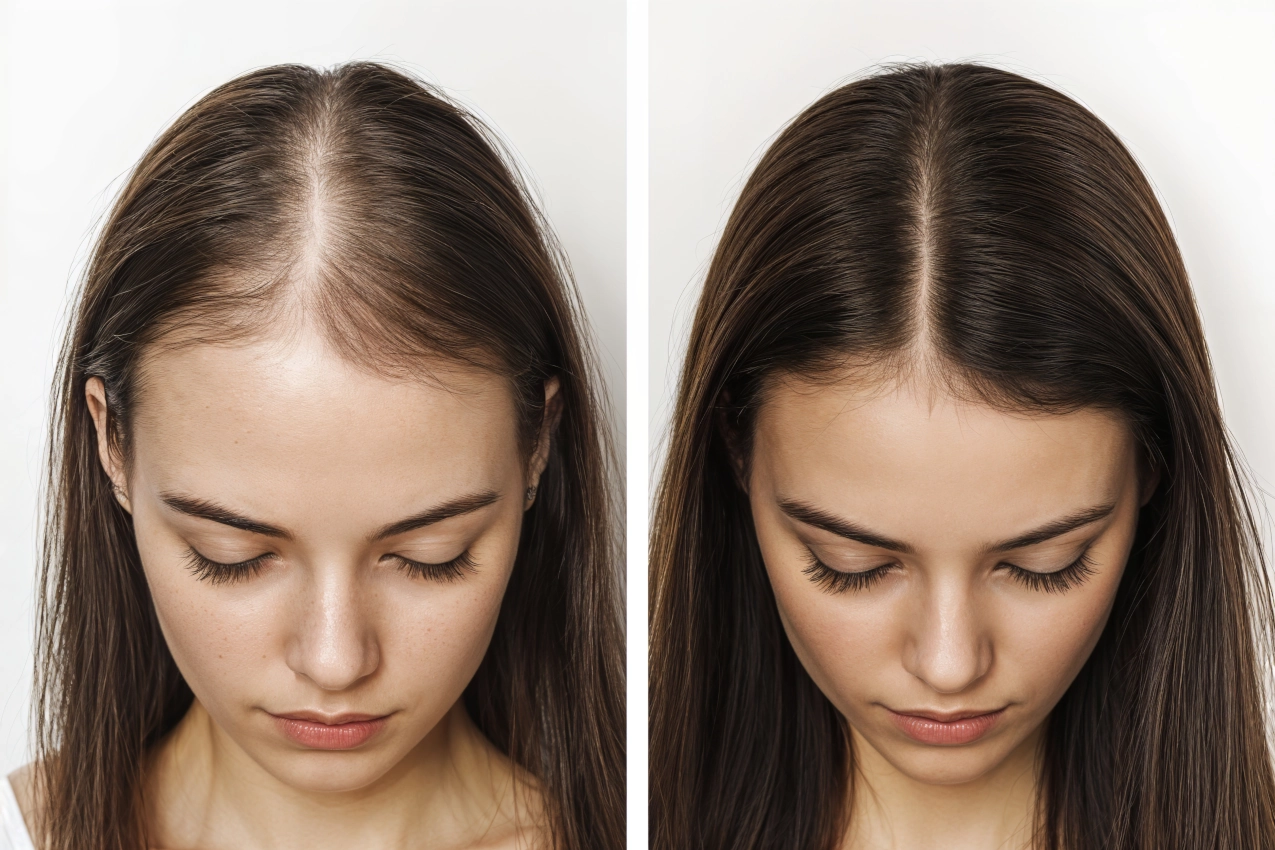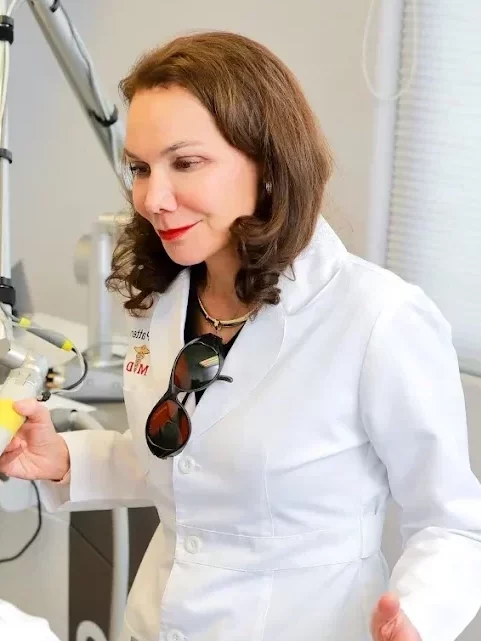Hair Loss Treatment for Women in Cochise County
Gwynn Patterson, M.D., FACOG

Hair loss in women can be frustrating, emotional, and sometimes even overwhelming. While some thinning is normal with age, significant shedding or visible scalp changes may point to an underlying medical issue or hormonal imbalance. At the office of Gwynn Patterson, M.D., FACOG, we offer compassionate, evidence-based treatment options to help women restore healthier, fuller hair.

Common Causes of Hair Loss in Women
Hormonal Changes
Fluctuations in hormones often trigger hair loss in women. Pregnancy, perimenopause, and menopause can all cause noticeable shedding or thinning. Conditions such as polycystic ovary syndrome (PCOS) also increase androgen levels, which can shrink hair follicles and slow growth.
Genetics
Female pattern hair loss is hereditary and one of the most common causes of thinning hair. It usually shows up as a widening part line or thinning on the crown rather than total bald spots. Early treatment can help slow the progression.
Thyroid Disorders
An overactive or underactive thyroid can interfere with the hair growth cycle. Women with thyroid imbalances may notice diffuse shedding across the scalp. Proper thyroid management often improves hair growth.
Iron or Vitamin Deficiencies
Low iron, vitamin D deficiency, or lack of certain nutrients can weaken hair follicles. Even mild deficiencies may lead to breakage or increased shedding. Correcting these deficiencies with targeted supplements can help restore healthier hair.
Stress or Illness
Both physical and emotional stress can push hair into a shedding phase. Illness, high fevers, surgery, or even sudden weight loss may lead to temporary hair loss known as telogen effluvium. This type of hair loss often improves once the body recovers.
Autoimmune Conditions
In autoimmune conditions like alopecia areata, the immune system mistakenly attacks hair follicles, causing round patches of hair loss. Corticosteroid injections and other targeted treatments can help restart growth in affected areas.
Treatment Options We Offer
Treatment depends on the cause, but may include:
- Topical Minoxidil (FDA-approved for women) – a proven solution to stimulate hair growth and reduce shedding.
- Oral Medications – such as low-dose oral minoxidil or spironolactone (an anti-androgen often used for hormone-related hair loss).
- Hormonal Therapy – including oral contraceptives or adjustments in hormone replacement therapy when appropriate.
- Nutritional Support – supplementation if iron, vitamin D, or other deficiencies are identified.
- PRP Therapy (Platelet-Rich Plasma) – injections of your own concentrated platelets to help stimulate natural hair regrowth.
- Steroid Injections – for autoimmune alopecia areata.
Why Choose Dr. Patterson?
As both an OB-GYN and aesthetics physician, Dr. Patterson understands the intimate connection between hormones, health, and confidence. Women in Sierra Vista and throughout Southern Arizona trust her for treatments that are both medically sound and personally tailored.
Take the First Step Toward Fuller Hair
If you’ve noticed thinning hair, widening part lines, or excessive shedding, you don’t have to face it alone. Schedule a consultation with Gwynn Patterson, M.D., FACOG to explore safe, effective treatment options for female hair loss.
📍 Serving Sierra Vista, Bisbee, Douglas, and the surrounding communities.

